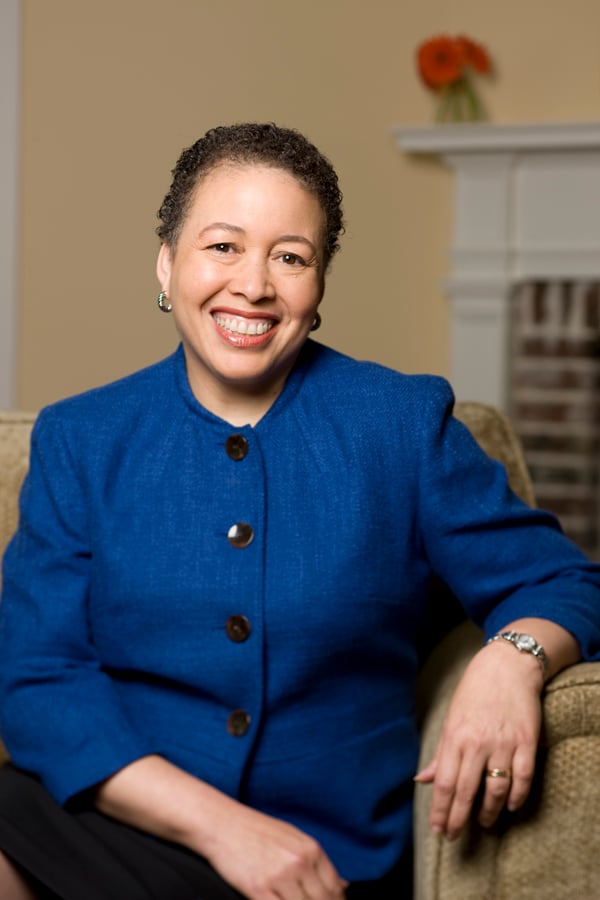You have /5 articles left.
Sign up for a free account or log in.
Many colleges will do just about anything to get a bigger share of the ever-increasing revenue and recognition brought from participation in intercollegiate athletics. This past year alone, universities rushed to join conferences that made little sense geographically or competitively, and college presidents dropped their initial resistance to a football playoff system.
Spelman College is doing the exact opposite. The historically black liberal arts women’s college in Atlanta will announce today that it is completely eliminating intercollegiate athletics at the end of this academic year.
Granted, Spelman’s presence in the NCAA was minuscule compared to that of many others, and the Division III college with 80 athletes is hardly getting the same attention as the Division I program that fields hundreds (and enjoys lucrative deals from championship appearances and television contracts).
So rather than dedicate its resources to programs from which only 4 percent of Spelman’s 2,000 students benefit, President Beverly Daniel Tatum decided to direct that money -- nearly $1 million -- and energy toward a campuswide fitness and wellness initiative that she sees as crucial to her students’ health and overall well-being.
“We say we are preparing them for their future lives, but when we think about our involvement in intercollegiate athletics or our activities in our physical education classes, those are not necessarily the things they’re going to do after graduation,” Tatum said in an interview with Inside Higher Ed. “We want them to live long and healthy lives so they can get the return on that investment they’ve made in higher education…. We really see this as a life-saving activity that we are engaging in.”
Life-saving because 44 percent of black women over the age of 20 have high blood pressure, according to the Centers for Disease Control and Prevention, and black women are more than twice as likely as white women to develop Type 2 diabetes. Life-saving because black women are more likely to suffer and die early from heart disease, breast cancer or stroke, afflictions all linked to obesity – and because four in five black women are obese or overweight, and by the age of 17 more than half of black girls report engaging in no leisure time physical activity at all, according to the National Institutes of Health.
While Tatum hopes other institutions will follow suit in their own ways, she said, Spelman has “not only a special responsibility, but a special opportunity” -- as a historically black college -- to address this issue. And regarding Spelman in particular, she points to its mission statement, which “seeks to empower the total person.”
“The habits you develop as a college student often carry you through the rest of your life. We have four years to really shape students in many different ways,” Tatum said. “In the African-American community, it seems like an especially important moment in their lives to make an intervention.”
Spelman has always had a physical education requirement, but it’s redesigning the curriculum to focus more on fitness and activities career women are likely to continue with as adults: more running, less archery; more yoga, less badminton. Instead of teaching how to play the game, instructors will help students understand their own bodies and their individual needs. It’s all about personal wellness.
In addition to the PE classes will be voluntary not-for-credit courses, already available but limited in scale because most campus resources were directed toward intercollegiate athletics and not co-curricular activities. Those courses will include things like Zumba and hip-hop aerobics – “lots of creative courses that students find very interesting and are participating in already,” Tatum said.
Just one problem: there’s nowhere to put everyone. So the college is raising $13 million ($6 million down so far) to renovate its gymnasium, which was built in the 1950s.
All this will be supplemented with a strictly educational component. Part of that is convocations like the one today, which will focus on wellness issues and why they’re particularly significant for black women. There’s also the Presidential Wellness Scholars program, a group of student ambassadors who will work to identify and change the attitudes and behaviors contributing to poor lifestyle habits, and deliver that message to their peers.
Overall, Tatum said, Spelman is “trying to create a culture on our campus where people see themselves as part of a community of women who are concerned about health and wellness.”
No college has withdrawn from the NCAA in the last decade, a spokeswoman said. (Inside Higher Ed’s press deadline did not permit for research further back in time.) Some colleges have eliminated intercollegiate sports citing major financial difficulties, including the University of Bridgeport in 1991 and Life University (then Life College) in 2002, but in those and other cases the programs were eventually reinstated.
Tatum doesn’t think it will affect the campus much. (Spelman was competitive, too; the cross-country team just won a conference championship.)
“Certainly, the young women who are involved in intercollegiate athletics are passionate about it, and so I don’t want to minimize the disappointment of those students who are still here,” Tatum said, noting that by the time intercollegiate athletics is cut, 40 students who came to Spelman expecting to play NCAA sports won’t be able to. “That said, athletics has never been a very big part of the Spelman experience. Most young women who want to come to Spelman are choosing Spelman for reasons other than our intercollegiate athletics program. So I think the students who really want to be at Spelman still will want to be at Spelman.”
Donna A. Lopiano, president of Sports Management Resources consulting firm and former chief executive officer of the Women’s Sports Foundation, which promotes girls and women in sports and fitness, agreed.
“I don’t see anything wrong with that kind of a programmatic decision. It sounds well-thought-out and with good rationale,” Lopiano said in an e-mail. “The beauty of higher education is that institutions specialize in all kinds of programs and activities. There are plenty of schools that offer intercollegiate athletics programs, where kids can go if that is important to them.”
Tatum is calling the initiative a “wellness revolution,” and she explained why.
“ I think that our students are women who will change the world,” Tatum said. “Spelman women are leaders, and have been for the last 132 years. When our founders founded the college in 1881 it was with the idea that they were going to educate women who would go out and educate others. In that same spirit, we feel we are going to educate women about wellness…. They can have a ripple effect that goes well beyond their own experience to really touch the lives of lots of people.”








